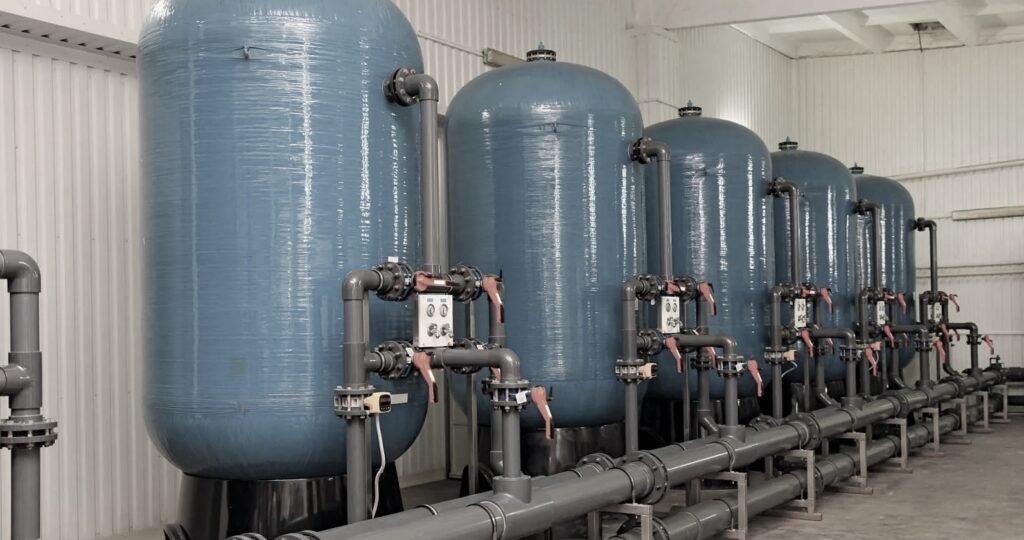In the realm of industrial operations, productivity and efficiency are critical. One critical aspect that significantly contributes to these goals is the implementation of effective filtration solutions and technologies.
Industrial filtration systems are designed to remove contaminants from air, liquids, and gases, ensuring the smooth operation of machinery, the quality of the final product, and the safety of the working environment. This article explores various industrial filtration solutions and technologies, highlighting their importance and benefits.
The Importance of Industrial Filtration
Industrial filtration is essential across a multitude of sectors, including manufacturing, pharmaceuticals, food and beverage, oil and gas, and water treatment. The primary functions of industrial filtration systems include:
- Protecting Equipment: Removing contaminants from fluids and gases helps prevent damage to industrial machinery and equipment, reducing maintenance costs and downtime.
- Ensuring Product Quality: Filtration ensures that end products meet quality standards by removing impurities that could affect their performance, appearance, or safety.
- Improving Environmental Compliance: Effective filtration helps industries comply with environmental regulations by reducing the release of harmful pollutants into the environment.
- Enhancing Worker Safety: By maintaining clean air and fluid systems, filtration systems help create a safer working environment for employees.
Types of Industrial Filtration Solutions
1. Air Filtration
Air filtration systems are designed to remove particulates, dust, and other contaminants from the air, ensuring clean air quality in industrial environments. Common air filtration solutions include:
- HEPA Filters: High-Efficiency Particulate Air (HEPA) filters are highly effective in capturing airborne particles as small as 0.3 microns, making them ideal for cleanrooms and sensitive manufacturing processes.
- Electrostatic Precipitators: These devices use electrostatic charges to capture and remove particles from the air, commonly used in industries like power generation and cement production.
- Activated Carbon Filters: These filters are used to remove odors, gases, and volatile organic compounds (VOCs) from the air, often employed in chemical processing and manufacturing.
2. Liquid Filtration
Liquid filtration systems are essential for removing contaminants from industrial liquids, including water, oils, and chemicals. Common types of liquid filtration include:
- Cartridge Filters: These filters are used for fine filtration and are available in various materials and pore sizes to suit different applications.
- Bag Filters: Bag filters are suitable for high-flow liquid filtration and are often used in industries like food and beverage and pharmaceuticals.
- Centrifugal Separators: These devices use centrifugal force to separate solid particles from liquids, commonly used in wastewater treatment and oil refining.
3. Gas Filtration
Gas filtration systems are crucial for removing impurities from gases used in industrial processes. Common gas filtration solutions include:
- Coalescing Filters: These filters remove liquids and aerosols from gases, often used in compressed air systems and natural gas processing.
- Membrane Filters: Membrane filters are used to separate gas mixtures and remove impurities, commonly employed in the chemical and petrochemical industries.
- Scrubbers: Scrubbers are used to remove pollutants and particulates from exhaust gases, helping industries comply with environmental regulations.
Advanced Filtration Technologies
1. Nanofiltration
Nanofiltration technology uses membranes with extremely small pores to remove contaminants at the molecular level. This technology is highly effective in removing dissolved solids, bacteria, and viruses from liquids, making it ideal for water treatment and pharmaceutical applications.
2. Ultrafiltration
Ultrafiltration membranes have larger pores than nanofiltration but are still effective in removing suspended solids, bacteria, and some viruses. This technology is widely used in the food and beverage industry, wastewater treatment, and biotechnology.
3. Reverse Osmosis
Reverse osmosis (RO) is a widely used technology that employs a semi-permeable membrane to remove ions, molecules, and larger particles from water. RO systems are essential in desalination, water purification, and chemical processing.
4. Electrodialysis
Electrodialysis is an electrochemical separation process that uses ion-exchange membranes to remove salts and other charged species from liquids. This technology is commonly used in the desalination of brackish water and the production of ultrapure water for industrial processes.
Benefits of Industrial Filtration Solutions
1. Increased Equipment Lifespan
By removing contaminants from fluids and gases, filtration systems help prevent wear and tear on industrial equipment, extending its lifespan and reducing the need for frequent repairs and replacements.
2. Improved Product Quality
Effective filtration ensures that end products are free from impurities that could compromise their quality, leading to higher customer satisfaction and reduced rejection rates.
3. Enhanced Operational Efficiency
Clean fluids and gases enable machinery to operate more efficiently, reducing energy consumption and improving overall productivity.
4. Environmental Protection
Filtration systems help industries reduce their environmental footprint by capturing pollutants and preventing their release into the environment, contributing to cleaner air and water.
The Importance of Industrial Filtration Solutions
Industrial filtration solutions and technologies play a crucial role in enhancing efficiency, protecting equipment, ensuring product quality, and promoting environmental sustainability. By understanding the different types of filtration systems and their applications, industries can make informed decisions to optimize their operations and achieve long-term success.
Investing in advanced filtration technologies not only safeguards industrial processes but also contributes to a healthier and safer working environment.
